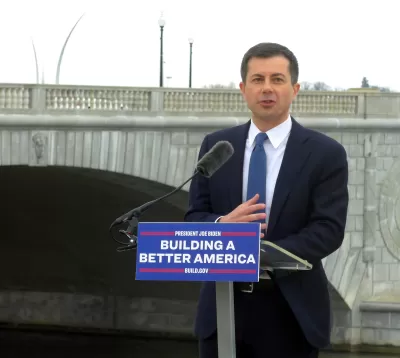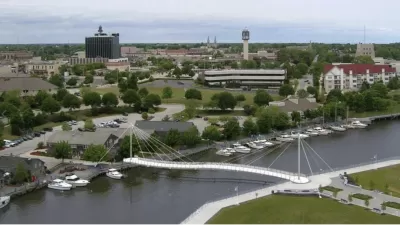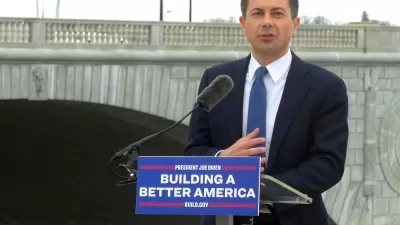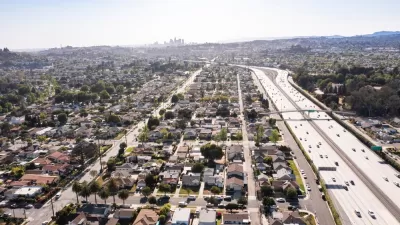The Rebuilding American Infrastructure with Sustainability and Equity (RAISE) competitive grant program, supersized by the federal infrastructure bill in 2021, just announced a new round of funding.

The U.S. Department of Transportation today announced $2.2 billion in funding from the Rebuilding American Infrastructure with Sustainability and Equity (RAISE) program. 2022 RAISE grants are for planning and capital investments that support roads, bridges, transit, rail, ports, or intermodal transportation. The program will fund $7.5 billion in improvements over the next five years, due to an influx made possible by the Infrastructure Investment and Jobs Act.
“Projects were evaluated on several criteria, including safety, environmental sustainability, quality of life, economic competitiveness and opportunity, partnership and collaboration, innovation, state of good repair, and mobility and community connectivity,” according to the U.S. DOT press release announcing the awards. The full list of awards can be found online.
Michael Laris picked up the news of the new grant funding for the Washington Post.
Christopher Coes, the assistant U.S. secretary for transportation policy, said 52 percent of funding announced Thursday is going toward roadway improvements, adding that a significant number of those included elements of Complete Streets, an effort pushed by the department to make roadways safer and more inviting for pedestrians. About 7 percent of the funding backed maritime projects, Coes said, while 4 percent went to rail.
The press release also breaks down the spending as 50% for projects in rural areas and 50% for projects in urban areas and nearly two-thirds for projects are located in areas of persistent poverty or historically disadvantaged communities.
According to Laris, Transportation Secretary Pete Buttigieg and Biden administration senior infrastructure adviser Mitch Landrieu are “traveling to key states this week to herald the grants and the progress they said they represent.” Among the projects to be highlighted by Biden administration officials are an innovative snow melting system in Berlin, New Hampshire; a project to relieve pedestrian ad freight bottlenecks in Tucson, Arizona; and a project to improve Metropolitan Atlanta Rapid Transit Authority’s Five Points station.
FULL STORY: 166 infrastructure projects awarded billions in federal funding

Maui's Vacation Rental Debate Turns Ugly
Verbal attacks, misinformation campaigns and fistfights plague a high-stakes debate to convert thousands of vacation rentals into long-term housing.

Planetizen Federal Action Tracker
A weekly monitor of how Trump’s orders and actions are impacting planners and planning in America.

San Francisco Suspends Traffic Calming Amidst Record Deaths
Citing “a challenging fiscal landscape,” the city will cease the program on the heels of 42 traffic deaths, including 24 pedestrians.

Defunct Pittsburgh Power Plant to Become Residential Tower
A decommissioned steam heat plant will be redeveloped into almost 100 affordable housing units.

Trump Prompts Restructuring of Transportation Research Board in “Unprecedented Overreach”
The TRB has eliminated more than half of its committees including those focused on climate, equity, and cities.

Amtrak Rolls Out New Orleans to Alabama “Mardi Gras” Train
The new service will operate morning and evening departures between Mobile and New Orleans.
Urban Design for Planners 1: Software Tools
This six-course series explores essential urban design concepts using open source software and equips planners with the tools they need to participate fully in the urban design process.
Planning for Universal Design
Learn the tools for implementing Universal Design in planning regulations.
Heyer Gruel & Associates PA
JM Goldson LLC
Custer County Colorado
City of Camden Redevelopment Agency
City of Astoria
Transportation Research & Education Center (TREC) at Portland State University
Jefferson Parish Government
Camden Redevelopment Agency
City of Claremont





























